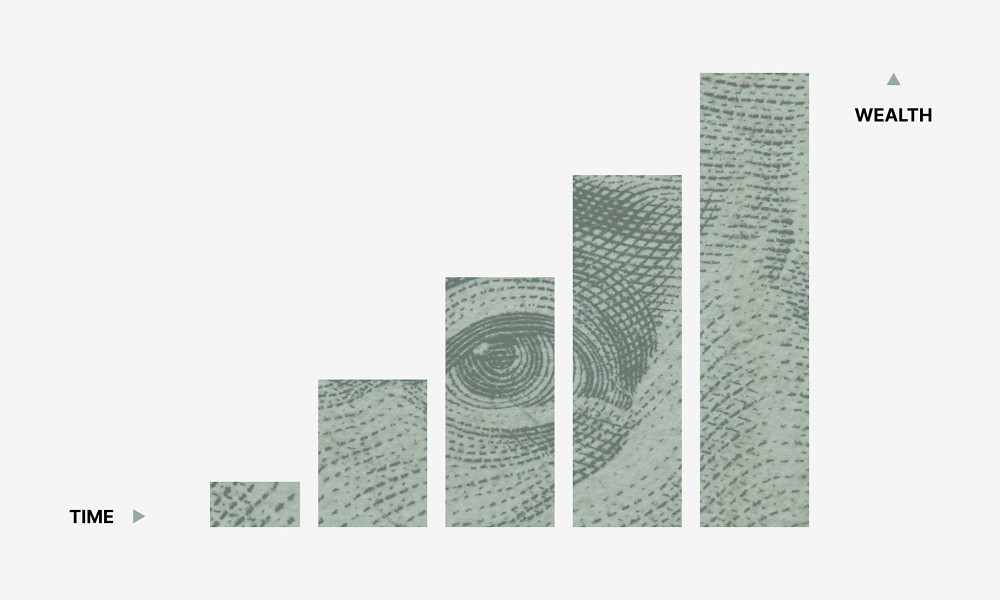Reviews
Generational Wealth Trends of Baby Boomers & Millennials

Generational wealth trends in the U.S. vary significantly between baby boomers and millennials, two generations at diverse points in their lives. Baby boomers were born between 1946 and 1964 and are now nearing retirement, while millennials were born between 1981 and 1996 and are currently in their prime working years. There’s a growing wealth gap between the two groups, but this doesn’t mean that the generation with less wealth had financial problems or made bad decisions. Let’s look at the trends and differences between the two generations and what contributes to these.
How Personal Wealth and Generational Wealth Are Determined
A person’s net worth determines personal wealth. To calculate your net worth, you add up the market value of your assets, like cash, the value of investment accounts, property, equity, and even the cash value of your life insurance policies. Then, subtract all your debts, like credit cards and loans, from your assets. The total is your net worth.
Meanwhile, generational wealth is the financial assets passed down through generations. These include cash, stocks, bonds, real estate, family businesses, intellectual property, companies, and charitable foundations. Generational wealth can provide long-term financial security for many families.
Today, there is a significant generational wealth gap between baby boomers and millennials, with the former owning about 50% of the nation’s wealth and the latter holding only 9%.
Generational Wealth Trends of Baby Boomers vs Millennials

The wealth trends between the two generations are highly disparate. Due to various factors, baby boomers have accumulated more substantial wealth than millennials. Here are the main reasons:
Investing
One significant wealth trend is the interest in investing and earning passive income. Millennials are more likely than baby boomers to invest in stocks, bonds, cryptocurrency, real estate, precious metals, and alternative assets.
They incorporate tools and software like OANDA for technical and fundamental analysis into this type of passive income. Millennials are more committed to forging a work-life balance so they can have time for other experiences. However, this is different for baby boomers who lived in a society dedicated to full-time employment and without the technology to adopt or support online investments.
Education and Earnings
Millennials are better educated, with 39% holding a bachelor’s degree or higher, compared to only 15% of baby boomers.
However, millennials have a higher outstanding debt, which adds to the disparity in wealth between the two generations. Individual earnings for young workers have remained relatively low over the past 50 years, even for college graduates.
Current Financial Priorities
Right now, baby boomers and millennials have different financial priorities, which affect how and where their wealth goes. Baby boomers are more focused on retirement and comfortable living, while millennials prioritize debt repayment, financial stability, and pursuing their passions.
Demographic Shifts
Millennials have surpassed baby boomers as the largest living adult generation. This shift increases generational diversity, as 55% of millennials identify as non-Hispanic white, compared to 84% of baby boomers.
Wealth Accumulation
Baby boomers have a much higher average net worth than millennials, primarily due to favorable economic conditions during their peak earning years, more extended time in the workforce, and the inheritance of wealth from the silent generation.
Moreover, baby boomers benefited from lower housing prices when they were younger than millennials, who now find it difficult to own property, especially as the market has become increasingly saturated.
Higher student debt makes it challenging for millennials to save and invest, further widening the wealth gap. Baby boomers also benefited from strong stock market growth during its heyday, allowing them to build substantial wealth. Now that baby boomers have aged, there’s expected to be a significant transfer of wealth to the younger generations, eventually narrowing the generational wealth gap.
Top Generations Based on Wealth

According to data released by the Federal Reserve, baby boomers are the wealthiest generation, with a total net worth of $78.55 trillion. Individuals in this age group would have easily saved money earlier, bought a home, paid off the mortgage, and received an inheritance from relatives. There’s also a trend of baby boomers owning and selling successful businesses.
The second wealthiest generation is Gen X, born between 1965 and 1980. They have a total net worth of $39.09 trillion, although their wealth is only half of that of the generation before them. This is due to factors like the number of years they’ve worked hard to earn and invest their money.
Then, we have the silent generation, which consists of people born between 1928 and 1945 and has a collective net worth of $19.84 trillion. Those in this age group have retired from their jobs for a couple of decades and are living off their wealth.
Finally, we have millennials, born between 1981 and 1996, with their share of the country’s wealth at $14.21 trillion. This generation is the least comparatively wealthy to previous generations as the oldest have not been in the workforce long, even if they started working after high school or went to college. Since 1985, tuition rates have skyrocketed, tripling the average student debt, job security has plummeted, the housing market isn’t kind, pension plans are hardly generous, and millennials don’t have much left to save and invest after paying for housing, transportation, food, and insurance.
Baby Boomers and Millennials With Diverse Wealth Trends
Baby boomers are generally wealthier than millennials, owning over 50% of all the wealth in the U.S. The only thing millennials can do is invest as early as possible with the amount they can afford to set aside. Millennials might also receive money from baby boomers and combine it with their investments to grow wealth for the next generation. Still, baby boomers and millennials have different financial priorities and limitations regarding investments, demography, and wealth accumulation.

-

 Legal6 days ago
Legal6 days agoMichigan man JD Vance sentenced to 2 years for threatening Trump and JD Vance
-

 Politics1 week ago
Politics1 week agoU.S. to designate Maduro-linked Cartel de los Soles as terrorist organization
-

 Health7 days ago
Health7 days agoCambodia reports fatal H5N1 bird flu case in 22-year-old man
-

 World4 days ago
World4 days agoHurricane Melissa registered 252 mph wind gust, breaking global record
-

 Legal4 days ago
Legal4 days agoWoman in critical condition after being set on fire on Chicago train
-

 Politics7 days ago
Politics7 days agoEpstein survivors release PSA calling on Congress to release all files
-

 Legal4 days ago
Legal4 days ago1 dead, 2 injured in shooting at Dallas Walmart parking lot
-

 Legal3 days ago
Legal3 days agoSuspect in San Diego stabbing shot by authorities after fleeing into Mexico



